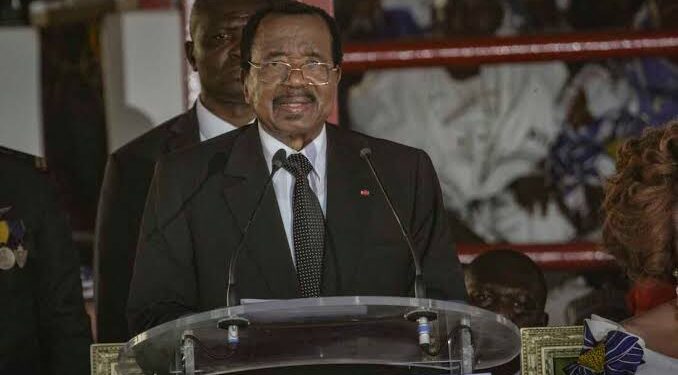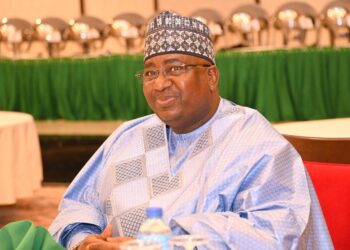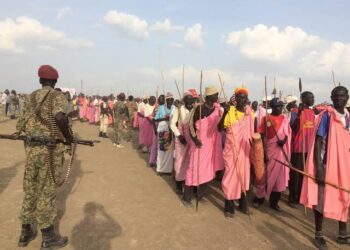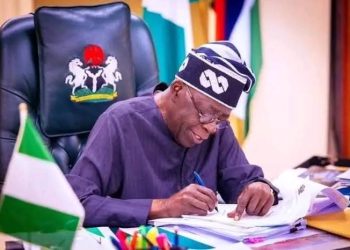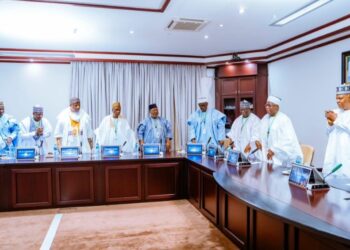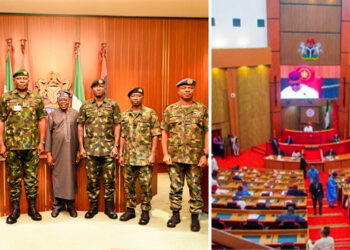Cameroon’s post-election period has been marred with violence, with at least four people reportedly killed allegedly by security forces, dozens injured and hundreds more arrested across the country since the October 12, 2025 presidential election, Human Rights Watch said today.
The authorities should immediately rein in their security forces, promptly and impartially investigate the excessive use of force and release all those wrongfully held.
The Constitutional Council announced on October 27 that the incumbent President Paul Biya, 92, had won the election with a 53.66 percent share of the vote. His main challenger, Issa Tchiroma Bakary, former transport and communication minister, had declared himself the winner on October 12.
“Tensions are running high given the contested reelection of Paul Biya,” said Ilaria Allegrozzi, senior Africa researcher at Human Rights Watch. “Security forces should be protecting people, not fueling the violence.”
The days after the vote were violent. Opposition-led protests erupted in major cities including the economic capital, Douala; the capital, Yaoundé; and the northern cities of Garoua and Maroua. Security forces responded to protests with tear gas, water cannons, and in some cases, live ammunition. After the announcement of the election results, protests also broke out across the country. Tchiroma said on Facebook that snipers stationed around his home in Garoua were “firing at point-blank range at the people,” and that two people had been killed.
According to local and international media and local sources consulted by Human Rights Watch, at least four people were killed during protests in Douala’s New Bell neighborhood on October 26. In a statement released the same day, Samuel Dieudonné Ivaha Diboua, the governor of the Littoral region where Douala is located, said youth, high on drugs, attacked a gendarmerie brigade and two police stations in the city with the aim of burning them and seizing weapons. Diboua also said “in the confrontation that followed, several members of the security forces were injured, and four people unfortunately lost their lives” and “investigations were opened to shed light on the unfortunate incidents.”
Diboua also issued a decree on October 26, announcing that 105 people had been detained for taking part in demonstrations sparked by an online call to protest from Tchiroma. However, Augustin Nguefack, Tchiroma’s legal counsel, told Human Rights Watch that he believes more people were detained in Douala on October 26 and that since the vote, security forces had detained at least 250 opposition protesters in the city.
Among those arrested in Douala are Anicet Ekane, Florence Titcho and Djeukam Tchameni, three leaders of the African Movement for New Independence and Democracy party (MANIDEM), which supported Tchiroma.
Supporters of Tchiroma and protesters were also arrested in other cities. On October 25, gendarmes arrested Aba’a Oyono, a public law scholar and Tchiroma’s adviser, at his home in Yaoundé. His whereabouts have not yet been revealed. The refusal to acknowledge detention or to provide information on the whereabouts of the detainee can constitute an enforced disappearance, a crime under international law. Members of civil society consulted by Human Rights Watch reported that security forces arrested at least 52 protesters, including minors, in Maroua on October 23. Media reported that security forces arrested at least 20 protesters in Garoua on October 21.
Biya, the world’s longest-serving president, has ruled Cameroon since 1982, maintaining a firm hold on power by abolishing presidential term limits in 2008 and consistently eliminating or silencing any challengers and dissenting voices.
On August 5, Cameroon’s Constitutional Council backed the electoral commission’s decision to bar Maurice Kamto, a key opposition leader and challenger, from the presidential elections. Kamto’s removal sparked criticism among his supporters and party members, who held marches and peaceful protests across the capital. Security forces used tear gas to disperse crowds, including dozens of Kamto’s supporters, who had gathered in front of the Constitutional Council on August 4. They also have detained at least 35 of Kamto’s supporters since July 26, all of whom have been released on bail.
It is not the first time that elections in Cameroon have been tainted with violence. Biya’s 2018 election sparked a wave of political repression. After the vote, opposition-led protests erupted across the country, and the government responded with a heavy crackdown deploying the police, army, and gendarmes who used excessive force against protesters.
In January 2019, Kamto and over 200 of his supporters were arrested and detained. Kamto was charged with insurrection, hostility against the homeland, and criminal association, among other charges. He was freed on October 5, 2019, and the charges were dropped, though the assault on the opposition continued.
Cameroonian authorities have for years cracked down on the opposition, media and dissent, jailing political opponents, journalists and activists. In the months leading up to the vote, the political space tightened and the authorities severely restricted freedom of expression and association.
The United Nations Basic Principles on the Use of Force and Firearms by Law Enforcement Officials provides that police must use the minimum necessary force at all times. Firearms may only be used to disperse violent assemblies when other less harmful means are not practicable. Law enforcement officers may only intentionally engage in lethal use of firearms when strictly unavoidable to protect life.
Various regional protocols ratified by Cameroon, including the Guiding Principles for the Policing of Assemblies in Africa, similarly provide that officers may only use force when strictly necessary. When using force, law enforcement officials should exercise restraint and act in proportion to the seriousness of the offense and to the legitimate objective to be achieved.
“Cameroonian authorities should immediately instruct their security forces to not resort to violence against protesters,” Allegrozzi said. “They should promptly and impartially investigate alleged use of excessive and lethal force and hold those responsible accountable for any killings during this sensitive time.”
Cameroon: Paul Biya declared winner of Cameroon presidential polls amid post-election violenceBy ThinkersCameroon’s post-election period has been marred with violence, with at least four people reportedly killed allegedly by security forces, dozens injured and hundreds more arrested across the country since the October 12, 2025 presidential election, Human Rights Watch said today.
The authorities should immediately rein in their security forces, promptly and impartially investigate the excessive use of force and release all those wrongfully held. The Constitutional Council announced on October 27 that the incumbent President Paul Biya, 92, had won the election with a 53.66 percent share of the vote. His main challenger, Issa Tchiroma Bakary, former transport and communication minister, had declared himself the winner on October 12.“Tensions are running high given the contested reelection of Paul Biya,” said Ilaria Allegrozzi, senior Africa researcher at Human Rights Watch.
“Security forces should be protecting people, not fueling the violence.”The days after the vote were violent. Opposition-led protests erupted in major cities including the economic capital, Douala; the capital, Yaoundé; and the northern cities of Garoua and Maroua. Security forces responded to protests with tear gas, water cannons, and in some cases, live ammunition.
After the announcement of the election results, protests also broke out across the country. Tchiroma said on Facebook that snipers stationed around his home in Garoua were “firing at point-blank range at the people,” and that two people had been killed.According to local and international media and local sources consulted by Human Rights Watch, at least four people were killed during protests in Douala’s New Bell neighborhood on October 26.
In a statement released the same day, Samuel Dieudonné Ivaha Diboua, the governor of the Littoral region where Douala is located, said youth, high on drugs, attacked a gendarmerie brigade and two police stations in the city with the aim of burning them and seizing weapons. Diboua also said “in the confrontation that followed, several members of the security forces were injured, and four people unfortunately lost their lives” and “investigations were opened to shed light on the unfortunate incidents.”Diboua also issued a decree on October 26, announcing that 105 people had been detained for taking part in demonstrations sparked by an online call to protest from Tchiroma.
However, Augustin Nguefack, Tchiroma’s legal counsel, told Human Rights Watch that he believes more people were detained in Douala on October 26 and that since the vote, security forces had detained at least 250 opposition protesters in the city. Among those arrested in Douala are Anicet Ekane, Florence Titcho and Djeukam Tchameni, three leaders of the African Movement for New Independence and Democracy party (MANIDEM), which supported Tchiroma.Supporters of Tchiroma and protesters were also arrested in other cities. On October 25, gendarmes arrested Aba’a Oyono, a public law scholar and Tchiroma’s adviser, at his home in Yaoundé. His whereabouts have not yet been revealed.
The refusal to acknowledge detention or to provide information on the whereabouts of the detainee can constitute an enforced disappearance, a crime under international law. Members of civil society consulted by Human Rights Watch reported that security forces arrested at least 52 protesters, including minors, in Maroua on October 23. Media reported that security forces arrested at least 20 protesters in Garoua on October 21.
Biya, the world’s longest-serving president, has ruled Cameroon since 1982, maintaining a firm hold on power by abolishing presidential term limits in 2008 and consistently eliminating or silencing any challengers and dissenting voices.On August 5, Cameroon’s Constitutional Council backed the electoral commission’s decision to bar Maurice Kamto, a key opposition leader and challenger, from the presidential elections. Kamto’s removal sparked criticism among his supporters and party members, who held marches and peaceful protests across the capital.
Security forces used tear gas to disperse crowds, including dozens of Kamto’s supporters, who had gathered in front of the Constitutional Council on August 4. They also have detained at least 35 of Kamto’s supporters since July 26, all of whom have been released on bail.It is not the first time that elections in Cameroon have been tainted with violence. Biya’s 2018 election sparked a wave of political repression.
After the vote, opposition-led protests erupted across the country, and the government responded with a heavy crackdown deploying the police, army, and gendarmes who used excessive force against protesters.
In January 2019, Kamto and over 200 of his supporters were arrested and detained. Kamto was charged with insurrection, hostility against the homeland, and criminal association, among other charges. He was freed on October 5, 2019, and the charges were dropped, though the assault on the opposition continued.Cameroonian authorities have for years cracked down on the opposition, media and dissent, jailing political opponents, journalists and activists.
In the months leading up to the vote, the political space tightened and the authorities severely restricted freedom of expression and association.The United Nations Basic Principles on the Use of Force and Firearms by Law Enforcement Officials provides that police must use the minimum necessary force at all times.
Firearms may only be used to disperse violent assemblies when other less harmful means are not practicable. Law enforcement officers may only intentionally engage in lethal use of firearms when strictly unavoidable to protect life.Various regional protocols ratified by Cameroon, including the Guiding Principles for the Policing of Assemblies in Africa, similarly provide that officers may only use force when strictly necessary.
When using force, law enforcement officials should exercise restraint and act in proportion to the seriousness of the offense and to the legitimate objective to be achieved.“Cameroonian authorities should immediately instruct their security forces to not resort to violence against protesters,” Allegrozzi said. “They should promptly and impartially investigate alleged use of excessive and lethal force and hold those responsible accountable for any killings during this sensitive time.”



